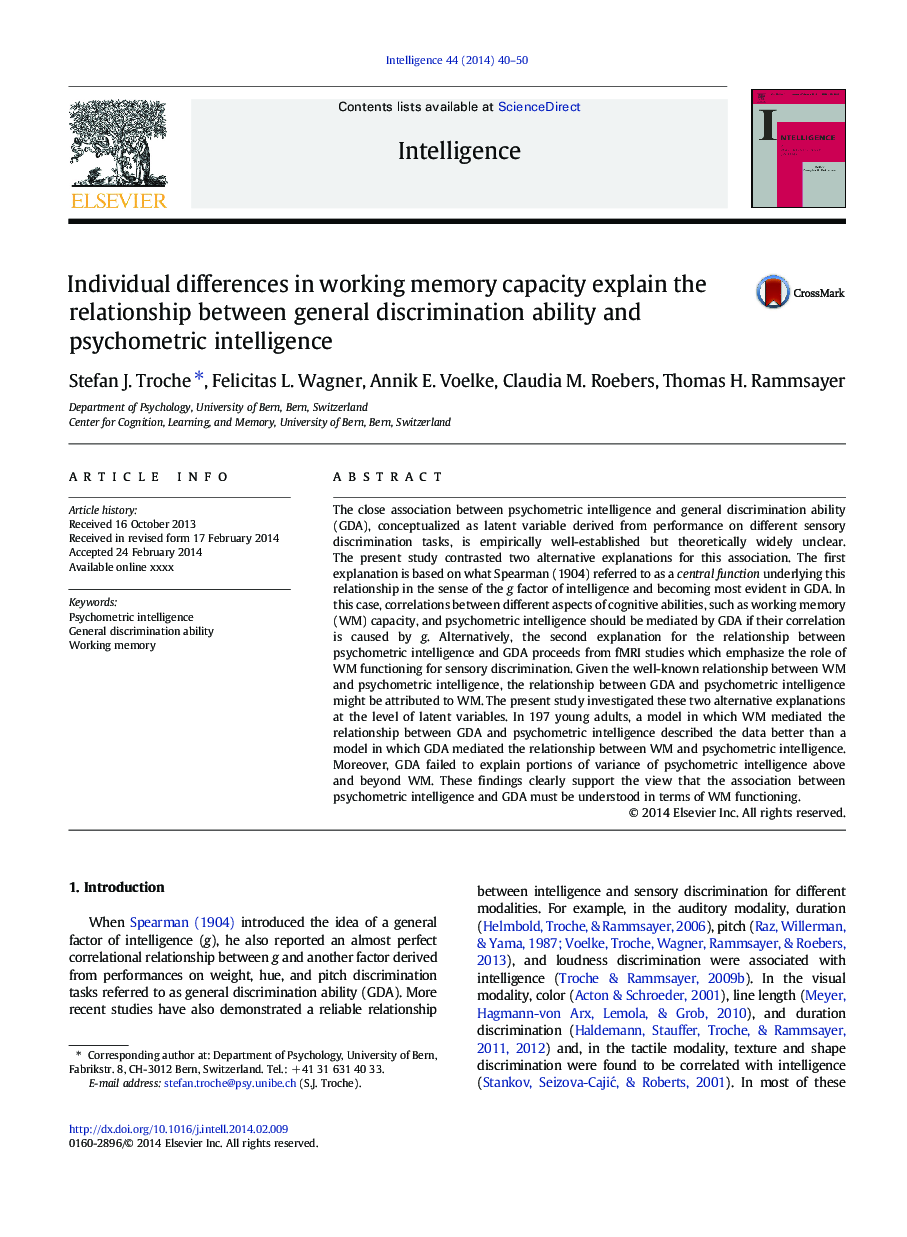| Article ID | Journal | Published Year | Pages | File Type |
|---|---|---|---|---|
| 7294520 | Intelligence | 2014 | 11 Pages |
Abstract
The close association between psychometric intelligence and general discrimination ability (GDA), conceptualized as latent variable derived from performance on different sensory discrimination tasks, is empirically well-established but theoretically widely unclear. The present study contrasted two alternative explanations for this association. The first explanation is based on what Spearman (1904) referred to as a central function underlying this relationship in the sense of the g factor of intelligence and becoming most evident in GDA. In this case, correlations between different aspects of cognitive abilities, such as working memory (WM) capacity, and psychometric intelligence should be mediated by GDA if their correlation is caused by g. Alternatively, the second explanation for the relationship between psychometric intelligence and GDA proceeds from fMRI studies which emphasize the role of WM functioning for sensory discrimination. Given the well-known relationship between WM and psychometric intelligence, the relationship between GDA and psychometric intelligence might be attributed to WM. The present study investigated these two alternative explanations at the level of latent variables. In 197 young adults, a model in which WM mediated the relationship between GDA and psychometric intelligence described the data better than a model in which GDA mediated the relationship between WM and psychometric intelligence. Moreover, GDA failed to explain portions of variance of psychometric intelligence above and beyond WM. These findings clearly support the view that the association between psychometric intelligence and GDA must be understood in terms of WM functioning.
Related Topics
Social Sciences and Humanities
Psychology
Experimental and Cognitive Psychology
Authors
Stefan J. Troche, Felicitas L. Wagner, Annik E. Voelke, Claudia M. Roebers, Thomas H. Rammsayer,
